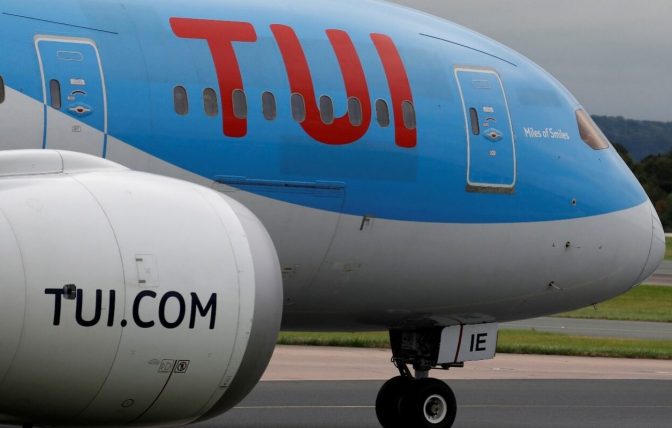

Tui, the world’s biggest tour operator, has enjoyed a surge in summer bookings following the collapse of its rival Thomas Cook, helping to offset the impact of the grounding of the Boeing 737 Max aircraft.
The company’s chief executive Fritz Joussen reported a 14% rise in group bookings year on year for this summer and a 3% increase in average selling prices to February 2, giving Tui a 17% rise in revenue on a year ago. The Tui chief said: “We have strong volume and strong price development. I can’t remember a January when that happened.”
He said fears about the spread of coronavirus from China to other countries had not affected demand for holidays, partly because European customers do not usually book holidays to Asia at this time of year.
Tui has sold 36% of its summer holidays, 2% more than at this time last year, with the average price up 3%. The tour operator acted quickly after Thomas Cook’s fall into administration in September, adding 21 aircraft to its fleet and taking on contracts for hotels that had formerly served Thomas Cook in countries such as Turkey. Tui expects 1 million additional travelers in the UK and 500,000 more in Germany.
The company also said it expects to receive some compensation from Boeing for the grounding of the 737 Max, which forced it to lease replacement aircraft for the remainder of this year. The plane was grounded after two crashes killed 346 people.
Factoring in the compensation, Tui expects the extended grounding period to cost it between €220m (£185m) to €245m, less than the €220m to €270m estimated in December. This means underlying profits are likely to be €850m to €1.05bn in the year to the end of September.
Joussen said: “There will be compensation from Boeing but it is a matter of negotiation and a matter of mutual agreement, how much is paid in cash, how much is paid in future deliveries, how much is credit notes.”
Tui plans to open 17 hotels this year, including several under its Riu and Robinson brands, while its flagship brand Tui Blue will expand to almost 100 hotels. The tour operator had fared better than Thomas Cook because the bulk of its profits come from its own hotels and cruise ships, giving it more control and higher profit margins.
Tui made €3.9bn revenues in the three months to the end of December, up 7.7%. But underlying profits fell 77% to €147m, reflecting higher fuel costs, a €45m cost related to the grounding of the 737 Max, and increased investment in its digital platform for “destination experiences”. These include trips such as igloo dinners in Lapland, balloon rides in Orlando and ebike tours in Florence.